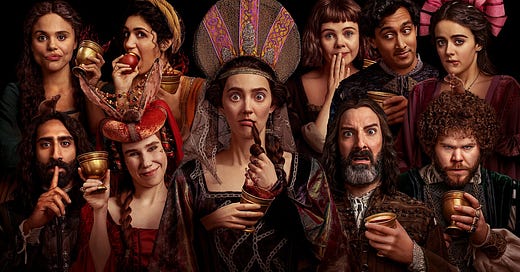"The Decameron."
The Netflix black comedy about the Black Death gets the Two Episode Test -- with a twist.
I can remember having more than one conversation — okay, probably thousands — with fans of television (and sometimes other TV critics) about my never wanting to do a combined Best Of the Year or Top 10 Best series list where drama and comedy would mix.
Never.
Or why, when pressed on something like “the five best series ever,” all of them would be dramas.
Keep reading with a 7-day free trial
Subscribe to Tim Goodman / Bastard Machine to keep reading this post and get 7 days of free access to the full post archives.




